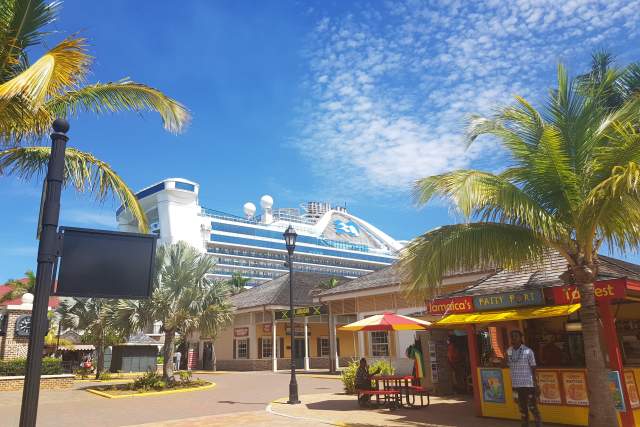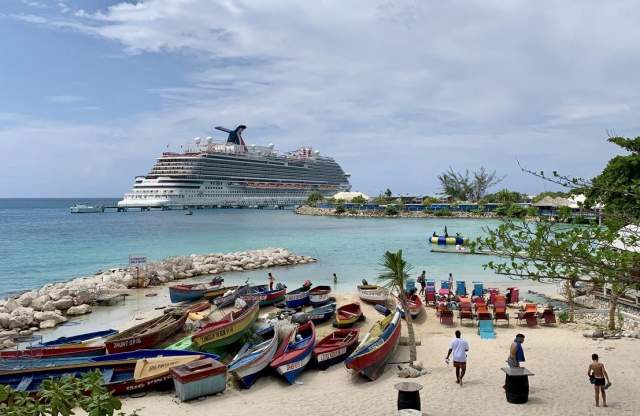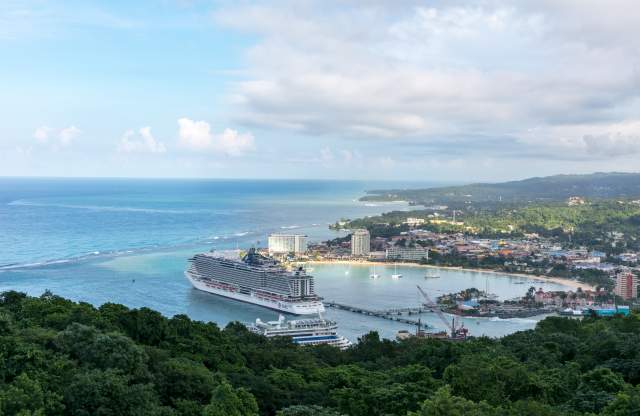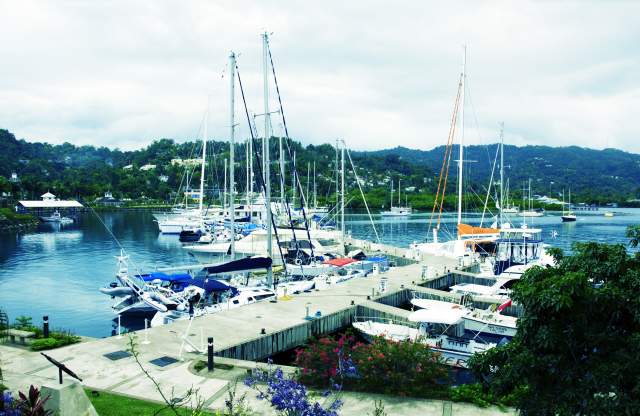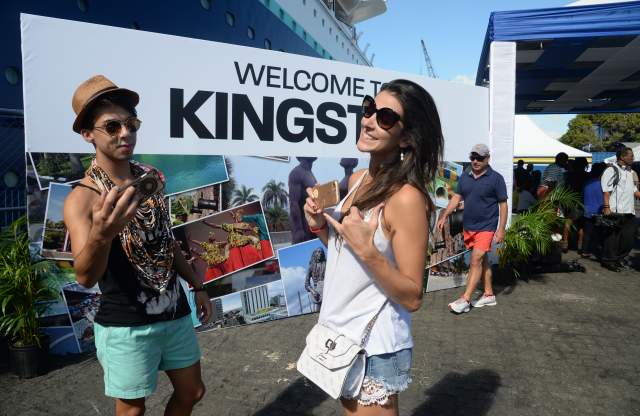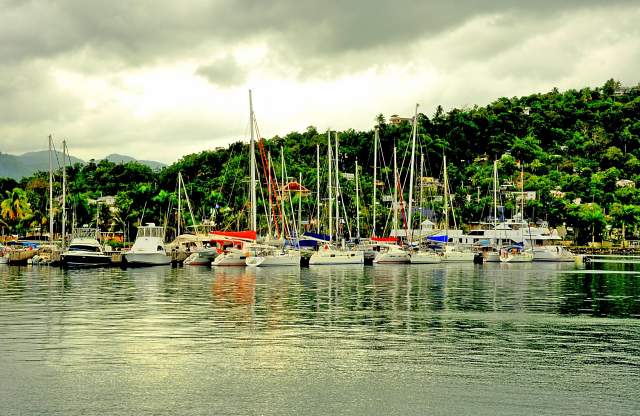Things To Know
Making it easy for you to enjoy Jamaica
We want to make your trip to Jamaica the best ever! Below we have listed a few tips and items that may be helpful while planning your trip to Jamaica.
Banks/Currency
Cambios and commercial banks are accessible in ports or in the towns around the ports. Official currency exchange rates vary daily. Most Jamaican ATMs accept international bank cards with Visa, MasterCard, Cirrus and Plus logos. Banks also give credit card advances, change traveler’s cheques and assist with remittances and other financial services.
Boaters & Yachters
It is recommended that boaters make their first landfall at the yacht club in Kingston or Montego Bay – Historic Falmouth, Kingston, Montego Bay, Ocho Rios or Port Antonio before proceeding to the smaller marinas. At the yacht clubs major ports boaters can receive updates that will make their time in and around the island safer and more pleasurable.
Climate
Jamaica enjoys a tropical climate, characterized by high temperatures and humid conditions year-round. Average temperature ranges from 19 degrees Celsius (66 degrees Fahrenheit) to 32 degrees Celsius (99 degrees Fahrenheit). Though we’re known for our warmth and sunshine, the island sees two rainy seasons from May to June and September to November. Also, hurricanes may pass over the island primarily during the months June to September.
Will it rain during your holiday? If it does, don't worry. Most times, the short tropical showers provide a welcome break from the afternoon heat.
Clothing
Lightweight tropical clothing is best suited throughout the year. Shorts and swimwear are acceptable on beaches. A light sweater is suggested for evenings, especially in the winter months. For business functions semi-casual wear for women and sports jacket for men are recommended.
Communications
Jamaica is well connected to the rest of the world. Direct international telephone service operates in all areas. The island’s robust mobile network is world class and boaters can choose to roam with their own carriers or purchase service for use on island. E-mail and Internet access are available too at the major ports and at local Internet cafes. The daily national newspapers are all available island-wide and online.
Drugs
In Jamaica, the use, sale and possession of drugs such as ganja (marijuana), cocaine, crack, ecstasy, heroin and any other controlled substance is illegal. Violators are subject to severe punishments – specifically arrest, fine and imprisonment.
Electricity
The electrical supply in Jamaica is 110 volts/50 cycles standard, and electrical appliances use plugs that are two-pronged and flat (such as those used in the United States and Canada). If your appliances do not use 110 volts or flat two-pronged plugs, bring the requisite adaptors and converters with you. Although adaptors and converters are available in Jamaica, they may not be easy to come by. Most laptop computers have built-in converters and can be used with an adaptor. If the idea of lugging all this equipment around seems daunting, leave it behind. Most accommodations have hair dryers, alarm clocks, radios and clothes irons available, and in any case you probably won't need many appliances. You are, after all, on holiday.
Holidays
Officially, Jamaicans celebrate ten public holidays per year: New Year's Day (January 1), Labour Day (May 23), Emancipation Day (August 1), Independence Day (August 6), Christmas Day (December 25) and Boxing Day (December 26), in addition to Ash Wednesday, Good Friday, Easter Monday and National Heroes Day (third Monday in October). On public holidays all government agencies, schools and most private businesses are closed, and much of the country "locks down" for the day. On holidays, Jamaicans throng to beaches and parks for picnics, relaxation and catch-ups, with the celebrations continuing well into the night.
Check the calendar of events for exact holiday dates this year, and if you’re here for one of these or for a public holiday, be sure to join in the festivities.
Language
The official language of Jamaica is English, although most of us converse using ‘Patois', a dialect as colorful and intriguing as our Jamaican personalities. It may take some time for you to become accustomed to it, but when you are, you'll have fun trying the local expressions.
Pets
Rabies is not a danger in Jamaica and we'd like to keep it that way. So although we would love to host your pets, we must ensure that they're completely healthy before they can be brought onto the island. In keeping with international standards, the importation of all live animals into Jamaica requires an import permit from the Veterinary Services Division of the Ministry of Agriculture prior to arrival in Jamaica. All animals must be rabies-free, and must never have been rabies vaccinated. Dogs and cats (with permits) are allowed into Jamaica only from Great Britain, Northern Ireland and Eire. For more information, contact the Veterinary Services Division: tel. 876-977-2489 or 876-977-2492.
Road Safety
Similar to marine navigation, road safety is a special art. The most important thing to remember is that in Jamaica, we drive on the left. Some flexibility is also required to avoid collisions with pedestrians, cyclists, cows, goats, chickens and other domestic animals. We have over 17,000 kilometers of road networks connecting all major towns and cities; the speed limit is 50 kmph (30 mph) in built-up areas and 80 kmph (50 mph) on highways. Highway 2000 on the island’s south coast permits speeds of up to 110 kmph (68mph) at certain points along the route, while the North-South Highway allows speeds of 80kmph (50 mph).
All drivers are required to carry a valid license. Jamaica recognizes valid international driver’s licenses, but visitors from North America may use their country's license for up to three months per visit. Car rental is available in most major towns and cities, and usually, clients must be 25 years old to rent.
Time Zone
Jamaica falls within the Eastern Time Zone (UTC/GMT -5 Hours) and does NOT observe Daylight Savings Time. At times in Jamaica, however, it seems as if we don't observe any time at all, so for the least amount of stress on your vacation, you may want to think about leaving your watch behind! At approximately 18 degrees north of the equator, the island falls within the tropics, and as such does not experience drastic seasonal changes in sunrise and sunset times. Year-round, the island averages between 11.5 and 12.5 hours of sunlight per day – always enough time to do everything, or never enough for anything!
Water
"Xamayca" is the name that the first Jamaicans, the Tainos, gave to this country. It means "Land of Wood and Water", and for good reason; Jamaica has hundreds of spring and rivers, both above and underground. Over the years, we have developed extensive water treatment and supply systems islandwide, so all drinking water in Jamaica is purified and filtered by modern methods. Our water is safe for you to drink, clean your teeth, bathe and wash clothing in. If you choose not to drink the water, rest assured; there are many brands of Jamaican spring water that meet or exceed the highest international standards, available at most shops and restaurants.

